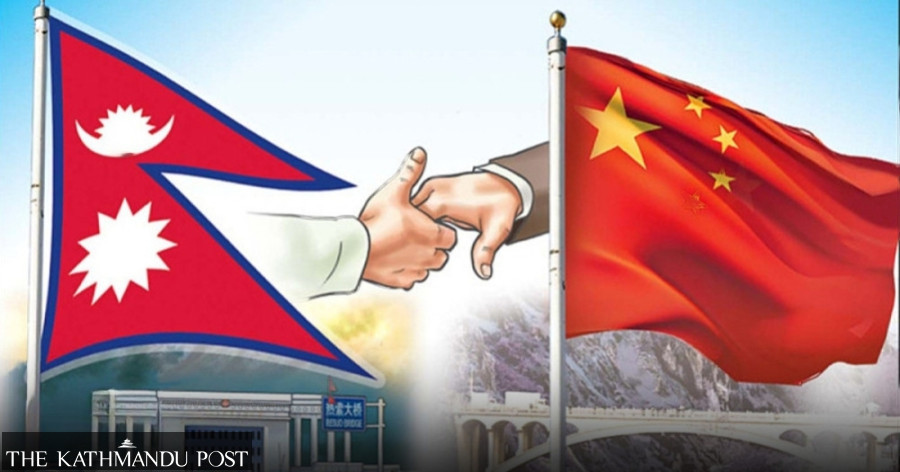Politics
Congress insists on grants, not loans for funding BRI projects
Cites existing high debt burden as reason for its position.
Purushottam Poudel
Nepali Congress once again has reiterated that Nepal is not interested in loan funding of Belt and Road Initiatives (BRI) projects.
Party spokesperson Parkash Saran Mahat said that after a meeting of the party's office bearers and former office bearers on Monday, the party concluded that Nepal should only accept grants, not loans for implementing BRI projects.
“The debt burden is already high, so the party has decided that further debt should not be taken for implementing BRI projects,” he said.
During the 16th round of the Nepal-China diplomatic consultation mechanism meeting, held on June 25 in Kathmandu, the two parties had planned to finalise the BRI implementation plan, but they could not agree on the modality for financing projects.
The Ministry of Foreign Affairs of Nepal corresponded with the Prime Minister’s Office to seek approval for signing the implementation plan during the diplomatic consultation mechanism meeting attended by Chinese Vice Foreign Minister Sun Weidong, but it failed.
The Congress, however, has been vocal in advocating for grants to implement BRI projects. During the Chinese Foreign Minister Wang Yi’s Nepal visit in March 2022, then Prime Minister Deuba had conveyed that Nepal would not implement BRI projects through loans.
Congress leaders also said that President Sher Bahadur Deuba, during his meeting with CPN-UML chair KP Sharma Oli at the latter’s residence in Balkot on Saturday, discussed the funding modality of BRI.
The Congress, which is the largest party in Parliament, held a gathering of its sitting and former office bearers on Monday following Saturday’s meeting between party chief Deuba and UML chair Oli.
While the meeting between Deuba and Oli sparked speculations about the two parties potentially cooperating to form a government, the Congress leaders, after Monday’s meeting, dismissed such a possibility anytime soon.
Congress spokesman Mahat categorically denied that the issue of Congress-UML collaboration on the government was discussed at Monday’s meeting.
But he did not rule out the possibility of the two parties coming together in the future.
Mahat outlined the conditions under which the two largest parties in the parliament could potentially collaborate: a stable and effective government, resolution of election-related challenges, and a clear path towards national stability and prosperity.
“The Congress party believes that political issues should take precedence over the government’s role,” Mahat said. “On cooperation, our party is open to cooperating with all parties on pressing national issues.”
He also said that the party is in discussion not just with the UML, but also with other parties for possible cooperation.
However, a close ally of Deuba claimed that during the Saturday meeting, Deuba proposed Oli as the prime minister for the first round should the two parties cooperate to form a new government.
“As far as I know, Deuba is not in the mood to be prime minister at the moment,” the Congress leader who was present at the office bearer and former office bearer meeting on Monday told the Post. “In such circumstances, if two parties come together to form a government, Oli would lead it first.”
A government of the two parties might be formed, but not in the next few days, said the Congress leader.
Similarly, the Congress meeting on Monday also decided to extend the tenures of its sister organisation by six months. Their terms were expiring on July 4. “Today’s meeting decided to extend the terms of the sister organisations so that they can elect new office bearers within six months,” Jeevan Pariyar, the Deputy General Secretary of the party, told the Post.
Meanwhile, Pariyar also said that the meeting decided to send the report of the party’s Mahasamiti meeting in February to the central committee for approval with amendments.
During the Mahasamiti meeting, Vice-President Purna Bahadur Khadka had presented a policy document, General Secretary Gagan Thapa had proposed organisational reforms, General Secretary Bishwa Parkash Sharma had presented a document on contemporary political issues, and spokesperson Prakash Sharan Mahat a document on the economic situation, prospects and future direction.
General Secretary Thapa's proposal drew controversy within the party. In it, he urged the party to contest the upcoming election on its own strength without forming any electoral alliance. Later, on March 4, the CPN (Maoist Centre) ditched its collaboration with the Congress and brought the UML into the government. The party pointed to Thapa’s proposal as a reason for a change in the ruling coalition.




 16.12°C Kathmandu
16.12°C Kathmandu















